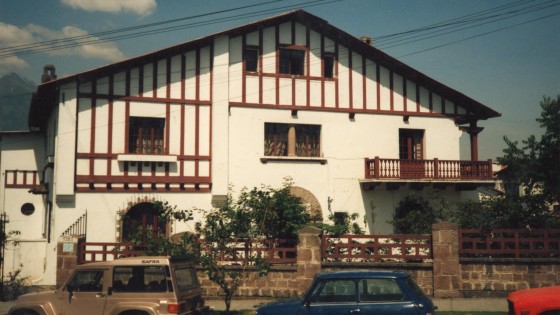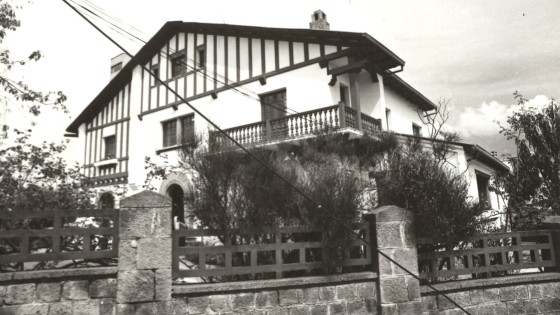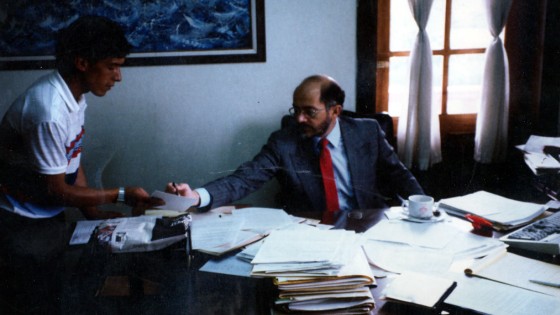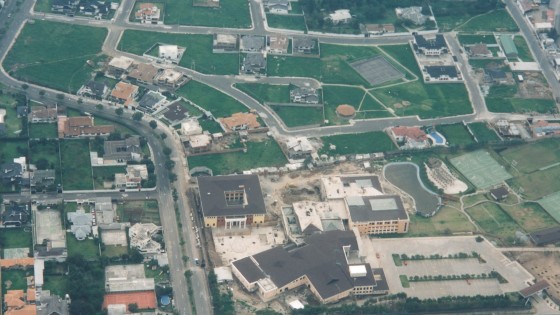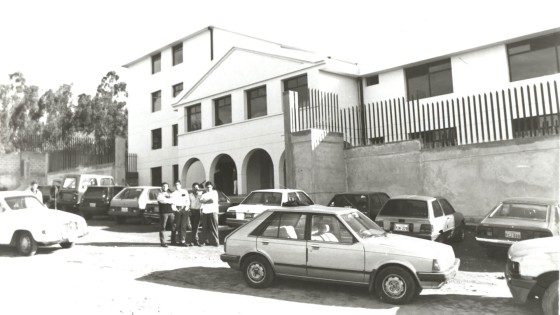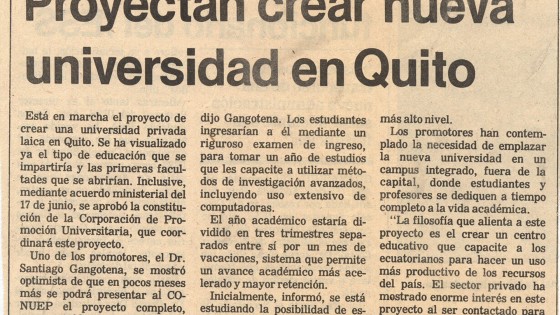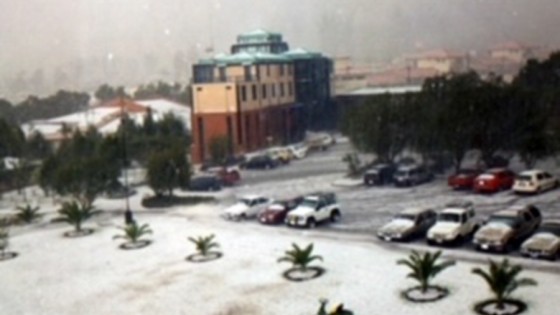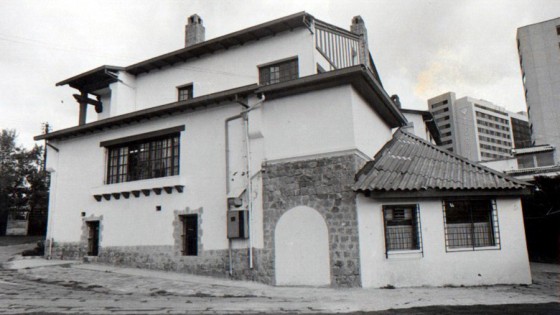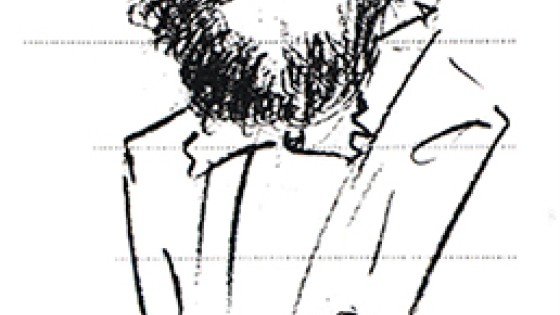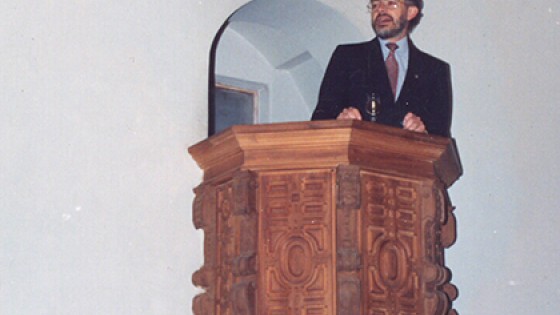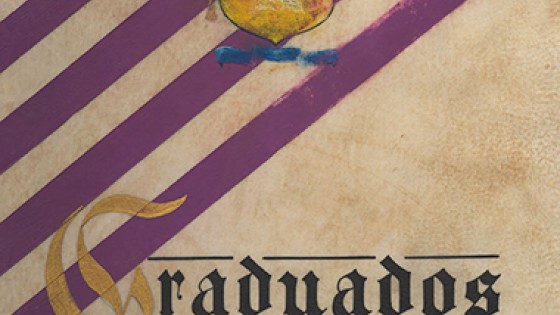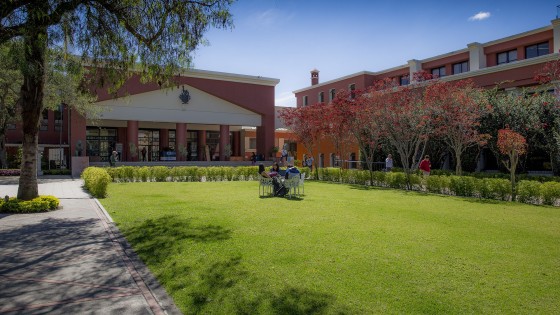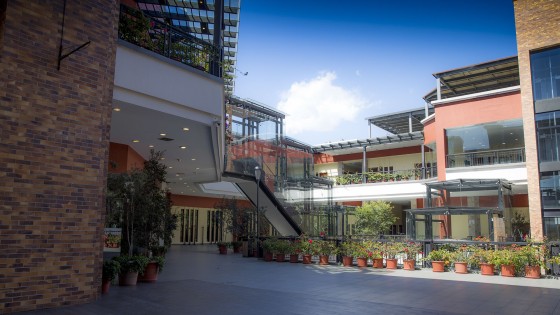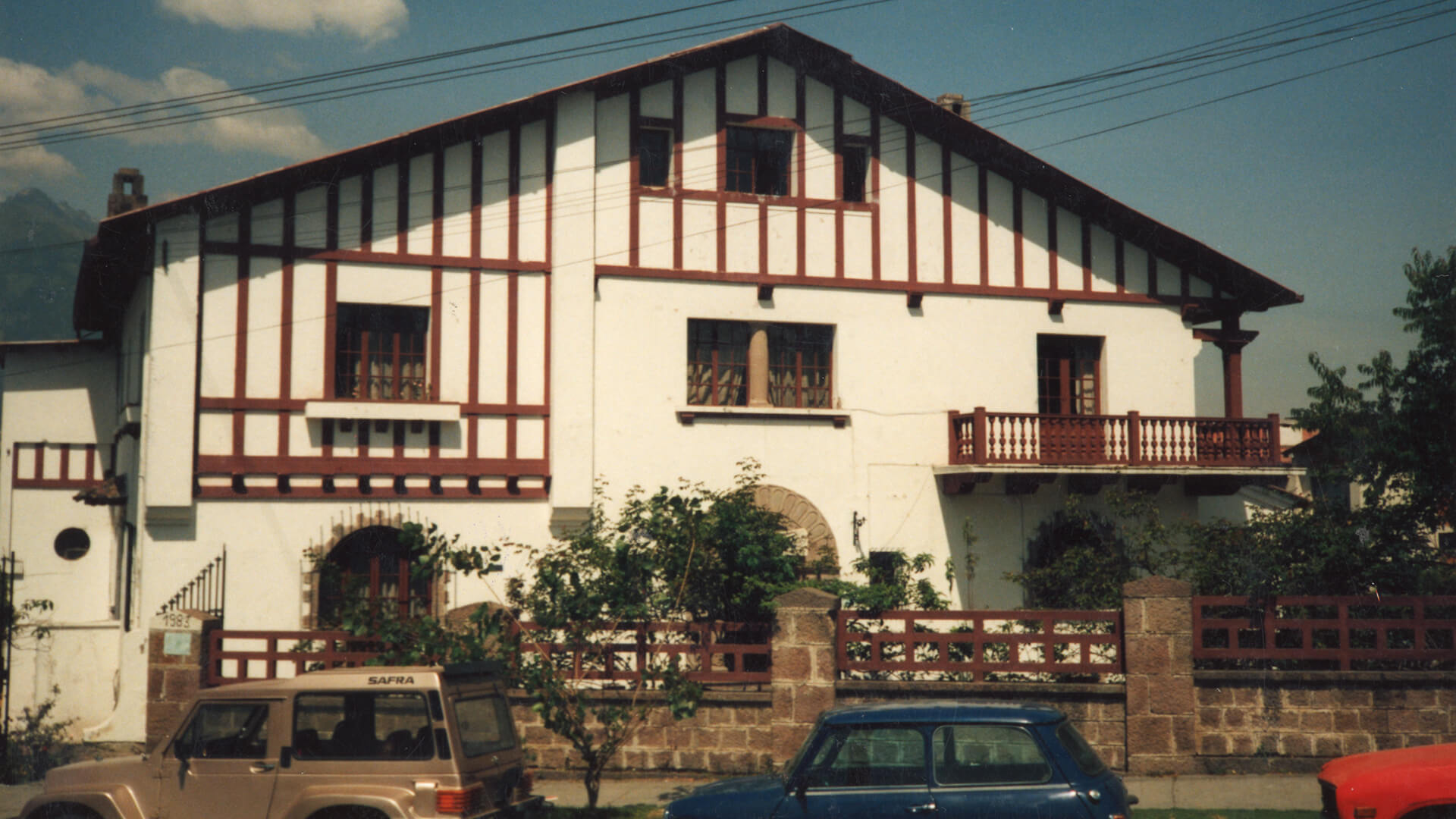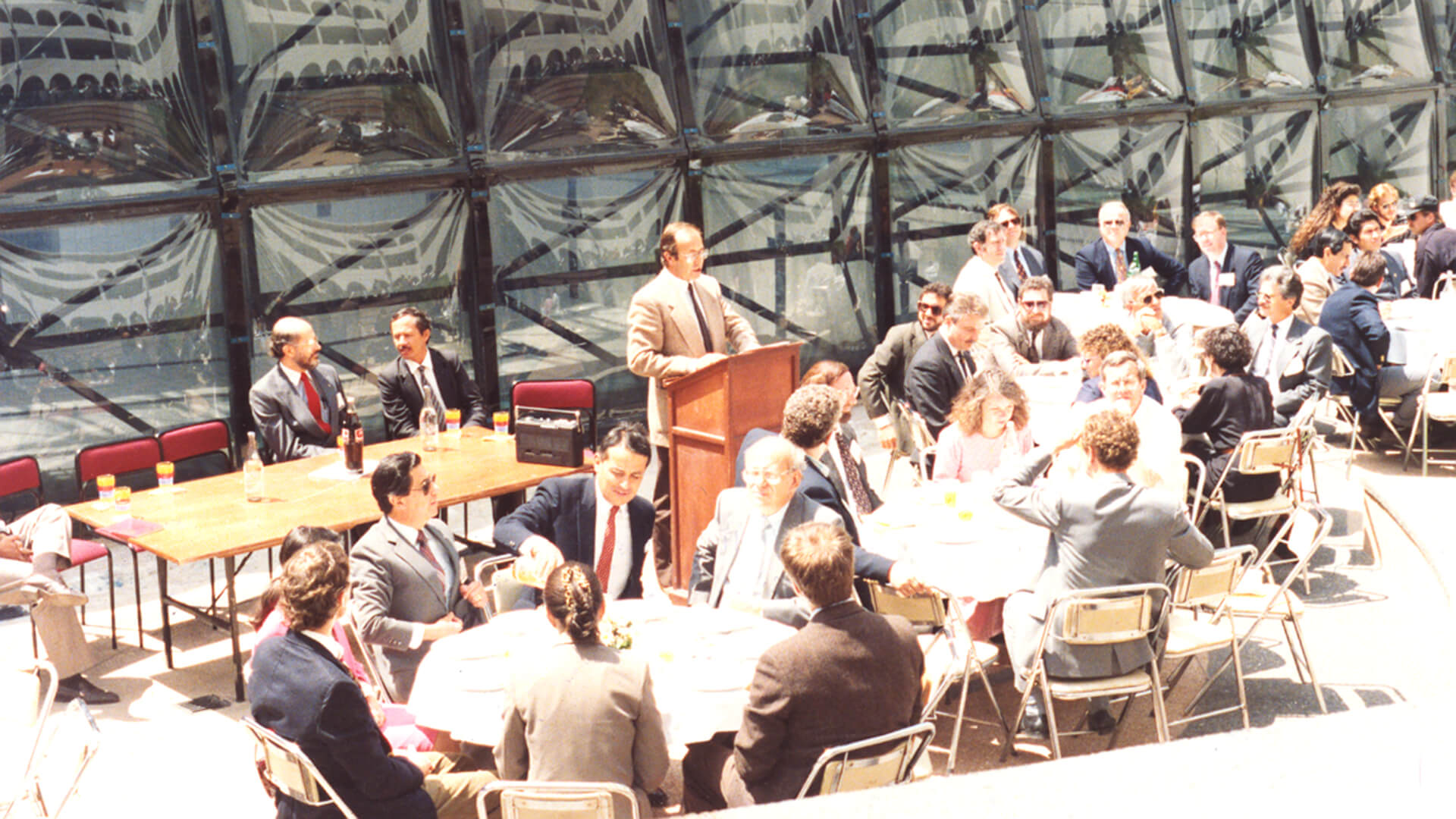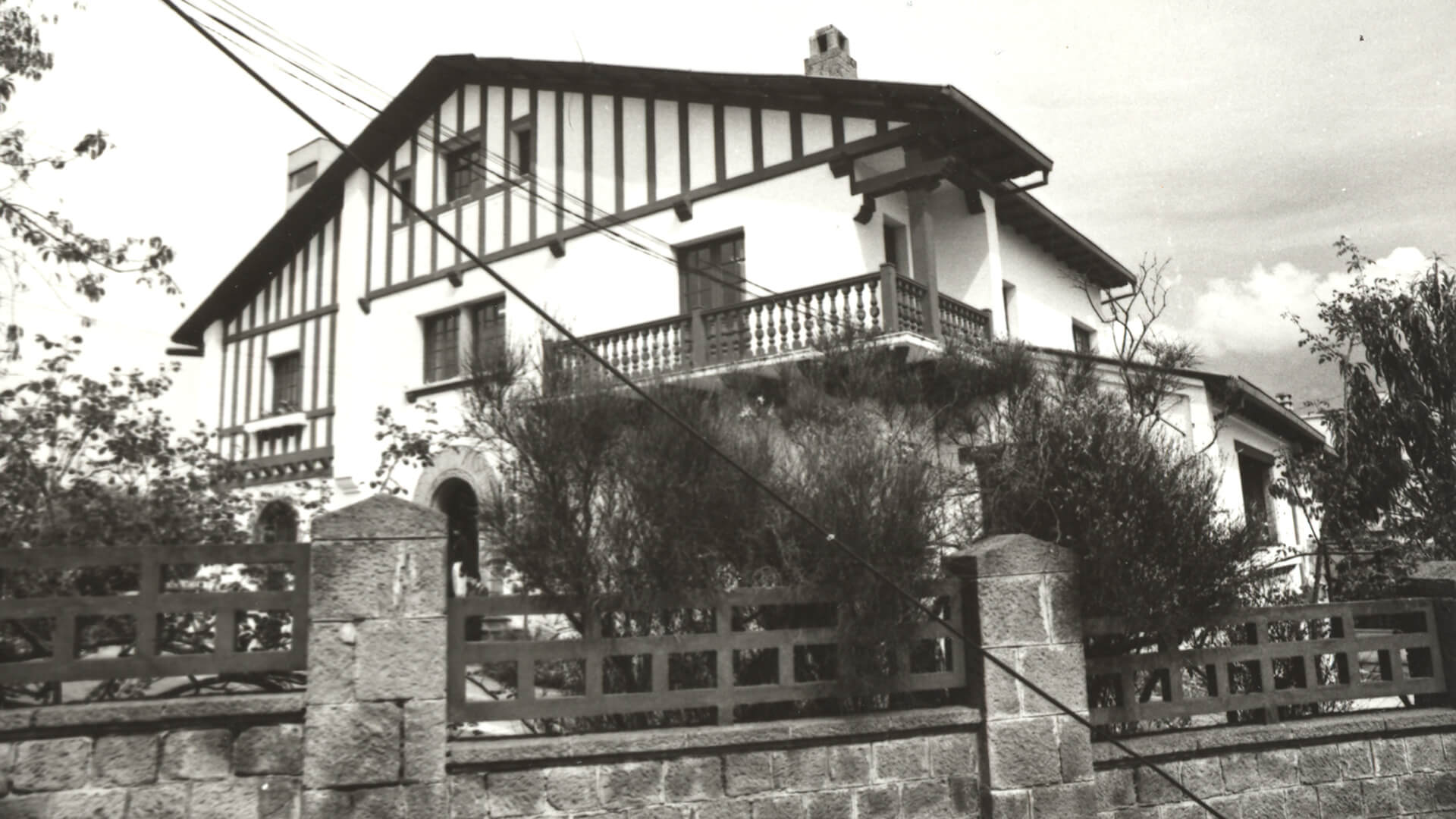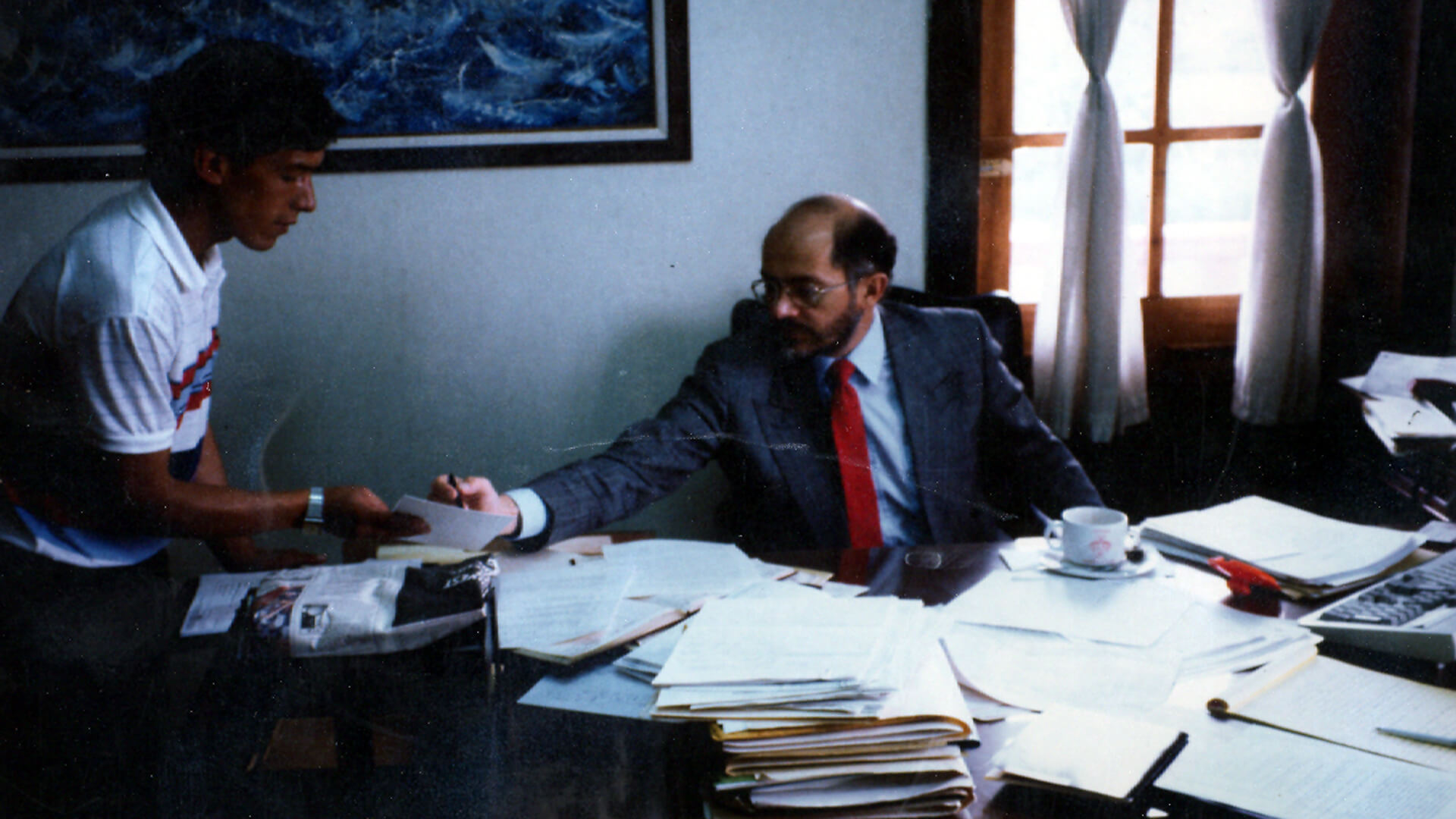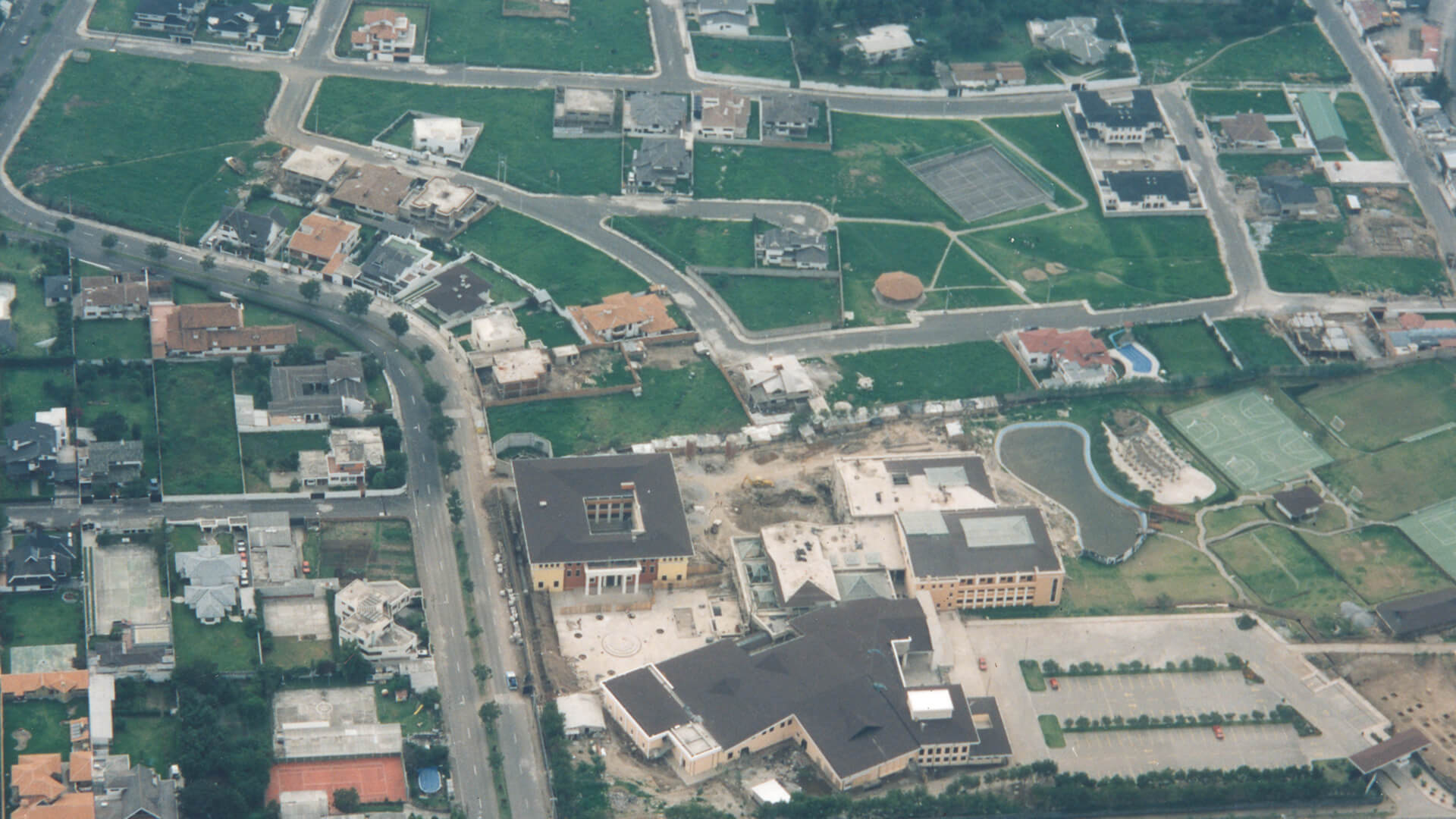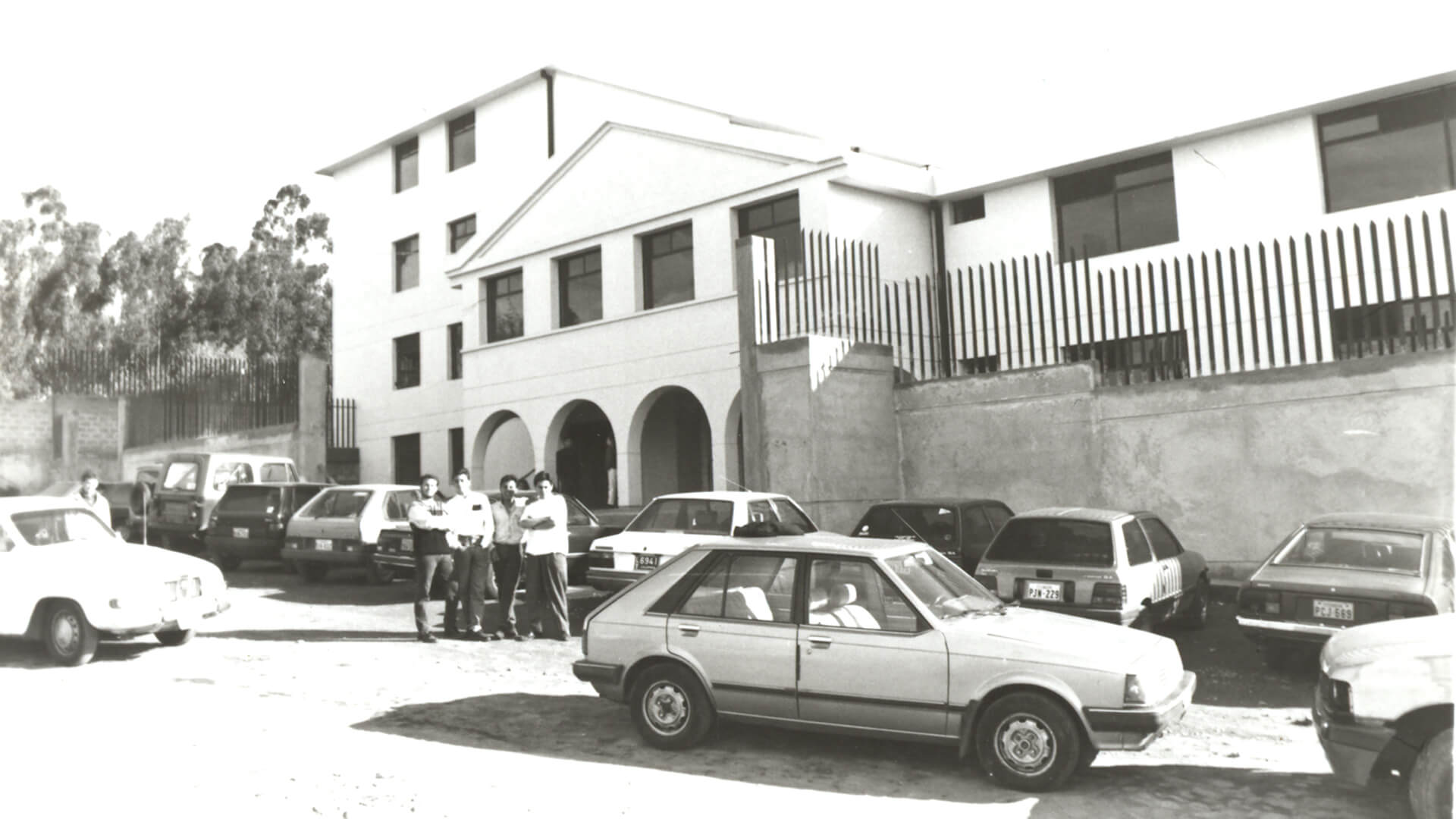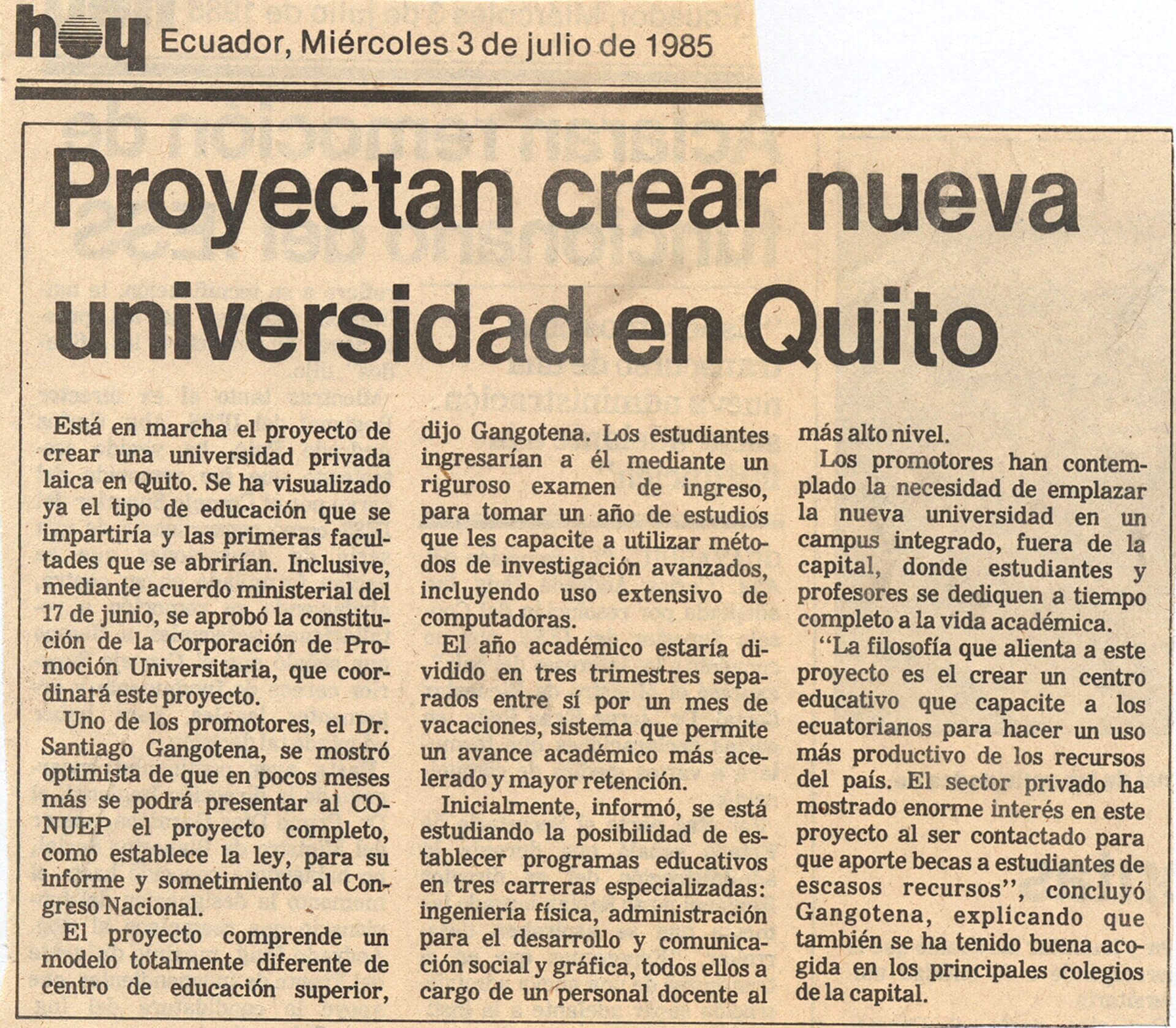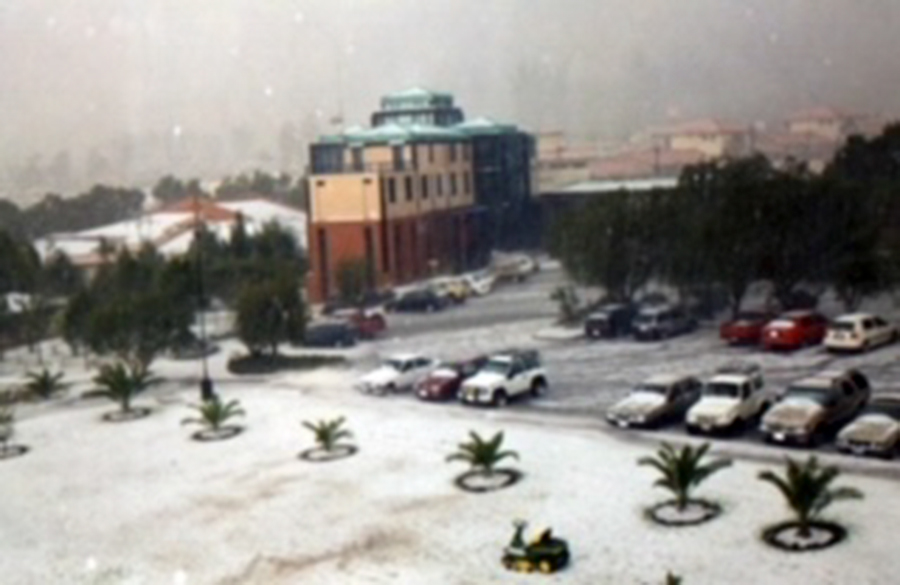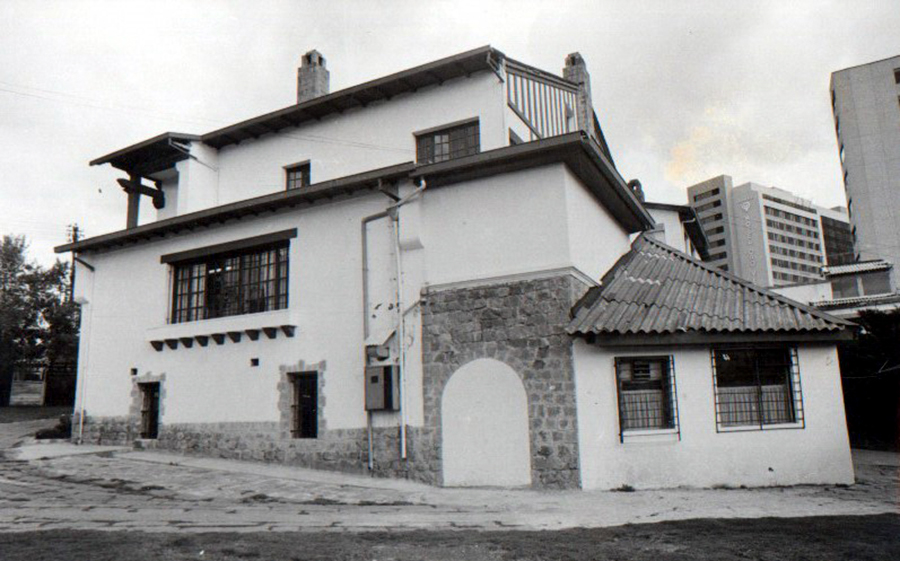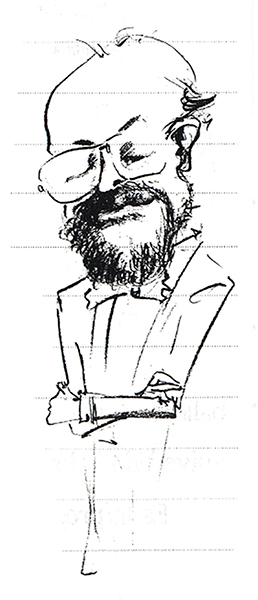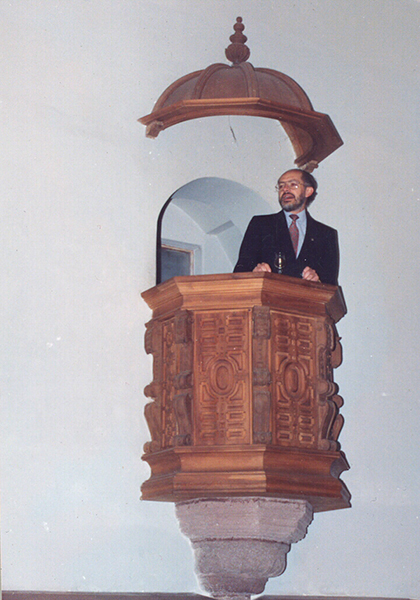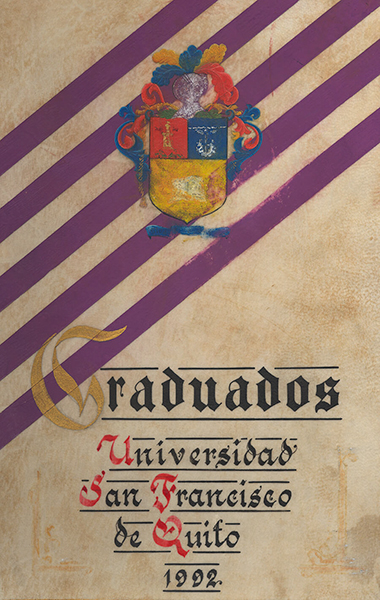History
History
USFQ is the fulfillment of the dream and initiative of Santiago Gangotena with the support of Carlos Montúfar, both with Ph.D.s in Physics, and the selfless contribution of many people over 31 years. Thanks to the conjunction of several factors, in 1980 a large number of academics and businessmen were brought together to form the CPU University Promotion Corporation. This non-profit institution's main objective was to create a university of academic excellence in Ecuador.
Following the rules for the creation of a new university, the CPU presented to CONUEP (National Council of Universities and Polytechnic Schools) with the project of a different university that was not approved due to the lack of academic vision at that time. This decision was not an obstacle to the determination to go ahead with this project. Thus, on September 1st, 1988, USFQ opened its doors as the first fully self-financed university in Ecuador in a residential house located on Avenida 12 de Octubre y Salazar. The 12 founding academics were joined by 122 young people who embarked on this extraordinary academic adventure. USFQ was officially recognized by the Ecuadorian State in October 1995 by Executive Decree 3166 (published in Official Register No.809). Its Statute was approved by CONESUP (National Council of Higher Education) on May 18th, 2001 by letter number 0053.
USFQ began work with three academic units, called colleges: the College of Administration for Development, the College of Communication and Culture, and the College of Applied Sciences. Over time, new academic disciplines were added and new schools were structured. By 1992, there were already six schools, Administration for Development; Communication and Arts; Environmental Sciences; Applied Sciences; Social Sciences, and Humanities and Languages, the latter two later integrated into the College of Liberal Arts. Later, the College of Architecture was created; the College of Health Sciences; The Polytechnic College; the College of Jurisprudence; the College of Hospitality and Culinary Arts; the College of Food, Agro-business, and Nutrition; the College of Technologies; the Graduate College, and finally the College of Education. Twenty-nine years later and after certain consolidations, USFQ is organized into 10 academic colleges and a postgraduate college, covering almost all major disciplines of knowledge.
In 2002, with the support of the local authorities of Galapagos, USFQ inaugurated its Extension in Galapagos (USFQ Galápagos), an international academic institution that develops academic, research, conservation, and development programs in the Galapagos Islands. The USFQ extension in the Galapagos has become the most important center for higher education, research, and connection with society throughout the archipelago.
On April 22nd, 2013, through resolution No. 002-044-CEAACES-2013, the Council for Evaluation, Accreditation, and Quality Assurance of Higher Education CEAACES accredited the USFQ Extension, located in the San Cristóbal canton.
USFQ meets international standards of excellence and has been ranked as the No.55 university in Latin America by QS Rankings.
Today, USFQ sets the pace in the development of university education in the country. Its educational philosophy based on Liberal Arts added to modern and participative teaching methods and an environment of friendship and local and international diversity defines the integral development of its students. Beyond giving its students good professional training, USFQ encourages their education as freethinkers, innovators, creatives, and entrepreneurs.
La USFQ en fotos
